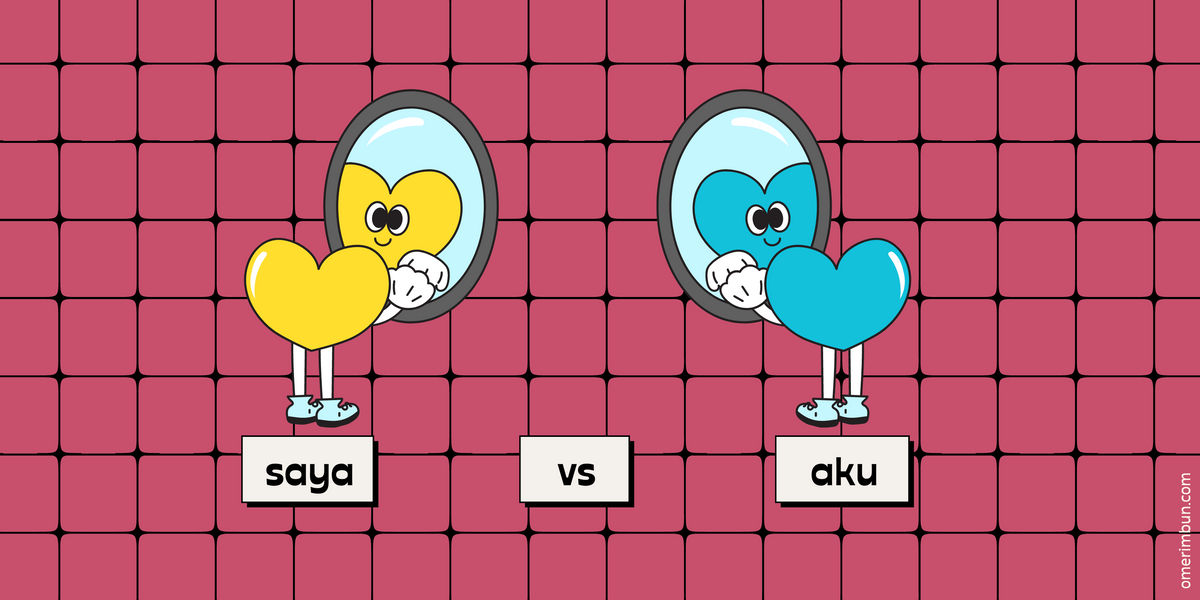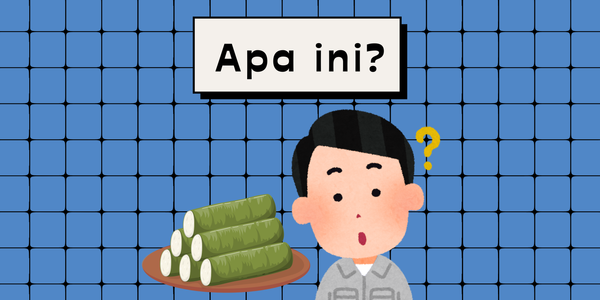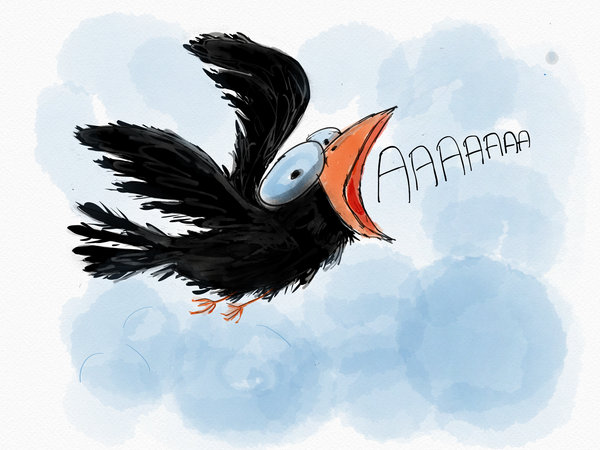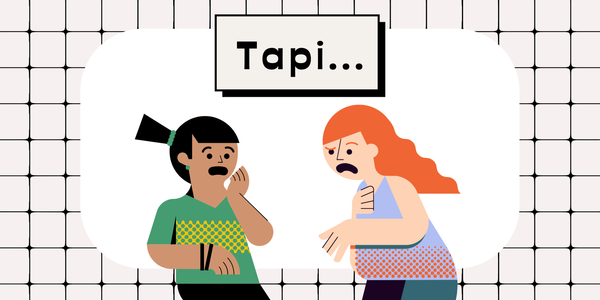Saya vs aku: basic Malay pronouns
What's the difference between 'saya' and 'aku'? What about 'kita' vs 'kami'? Let's read and apply it to our everyday life.

Today we’ll discuss the basic formal and colloquial Malay pronouns for I, you, he/she, we and they!
✓ Saya, aku: I
“Saya”
is a first person pronoun which is more polite than “aku”, hence “saya” is used a lot more in formal settings when propriety is expected to be upheld. Example:
[In a meeting]
Saya akan mulakan meeting ini dengan….
I will start this meeting with…
[Meeting someone for the first time]
Saya Mahsuri, pelajar di Universiti Batu Selatan.
I’m Mahsuri, a student at the South Stone University.
[At dinner with your future mother-in-law]
Masakan mak cik hari ini sedap! Kena dengan selera saya.
Your cooking today was delicious! Suits my taste.
However, some longtime friends also use “saya” when conversing, so it’s not necessarily used in formal settings. There’s also a connotation of intimacy or flirtatiousness when one uses it in a loving manner with the opposite gender/partner. Hence, it’s quite a flexible and safe way of referring to oneself.
“Aku”
is more rough-sounding, so it’s used more commonly between those who are close, such as with friends and siblings. Using it with your elders might not be a good idea unless you want to risk sounding rude. However, there are of course exceptions to the rule, and the usage of “aku” is perfectly acceptable with everyone, including your elders. These differences occur depending on local dialects, so beware! But this pronoun is all too common in Malay poetry and carries no negative connotation whatsoever. So, feel free to use it in a Malay poem of your own.
[Talking to friends]
Jom lepak dengan aku!
Let’s hang out with me!
[When asking for a fight]
Kau tahu siapa aku!?
Do you know who I am!?
[Speaking in the Sabahan dialect]
Aku mahu makan bah.
I want to eat.
✓ Kami, kita: We/Us
“Kami”
is used when referring to the speaker’s group while excluding the listener. It sounds neutral and quite polite, so it can be used in many formal and informal settings.
[Talking to a policeman]
Kami nak laporkan kes, tuan.
We want to report a case, sir.
[Talking to friends]
Kami sekeluarga pernah pergi ke Disneyland.
Our family has been to Disneyland.
[During a presentation]
Kami telah menjalankan tinjauan berkenaan…
We have conducted a survey regarding…
On the other hand, “kita”
refers to the speaker’s group while including the listener. You will hear this in formal speeches that implore a group of people to do something, but it can also be used in informal settings.
[In a Prime minister’s speech]
Kita seharusnya bersatu demi negara…
We should unite for the nation…
[In a philosophical discussion with friends]
Sebagai manusia, kita semua akan sentiasa berubah mengikut situasi.
We as humans will always change according to the situation.
[Talking with friends]
Kita kawan, kan?
We’re friends, right?
An interesting thing to note about “kita” is that it is also often colloquially used to refer to oneself, and not to a group of people. This may differ according to local dialects, but also to an individual's personal method of speech. With this usage, it can sound a bit feminine and personal, but varies depending on the tone.
[Telling someone about your plans]
Kita nak ke sekolah pukul satu nanti.
I want to go to school at one O’clock later.
A very colloquial but common way to refer to the speaker’s group is “kita orang” or “kitorang”.
Ironically, it functions very similarly to how “kami” works, not “kita”, so it excludes the listeners. You can use it with your elders as it is not rude, but not in formal settings.
[Inviting your friend to an outing]
Kitorang nak pergi makan nanti, kau nak ikut tak?
We are going to eat later, you wanna join us?
✓ Awak, kau, kamu, anda: You
“Awak”
is politer than “kau”, and is usually used in tandem with “saya”. Hence, it works quite similarly with “saya”, in that it can be used in formal settings, with family and friends or during a flirtatious conversation. However, it is rarely used to refer to someone who is higher in a hierarchy, be it position or age, and their title is used instead.
[Talking to a colleague]
Awak sudah siapkan laporan semalam?
Did you finish the report from yesterday?
[Talking to friends or lovers]
Awak nak teman saya makan tak?
Do you want to accompany me for a meal?
[Talking to your boss]
[X] Awak ada janji temu pada pukul tiga petang nanti.
[✓] Tuan/puan ada janji temu pada pukul tiga petang nanti.
You have a meeting later at three in the evening.
“Kau” or “engkau”
is paired usually with “aku”, so it is often used in informal settings with close friends or family, but not with your elders. It is also colloquially pronounced and spelled as “ko” or “engko”. Both versions sound perfectly local, and it depends on one’s personal preference.
[Talking to friends]
Kau/ko dah makan ke belum?
Have you eaten or not?
[A mom reprimanding her child]
Engkau/engko ni suka buat Mak marah!
You always make me angry!
“Kamu”
usually refers to the listeners as a group, but it can also be used to refer to one listener. While it seems to be a pairing of “kami”, it actually has a connotation of the speaker being above the listener, so it is normally used by older people or people with authority to someone younger or with less authority. It is hardly used among friends.
[A mom talking to her child]
Kamu jangan asyik keluar lewat petang.
You shouldn’t keep going out late in the evening.
[An employer talking to their subordinate]
Kamu perlu sedar bahawa kita…
You should realise that we are…
[A teacher talking to their student]
Ali, kamu sudah siapkan kerja sekolah ke belum?
Ali, have you finished your homework?
A formal and polite way of addressing a group of people is “anda”.
It is used in speeches, advertisements, tv shows and so on. It is not used in daily conversation.
[A toothpaste advert]
Anda rasa gigi anda kuning? Gunakan…
Do you feel like your teeth are yellow? Use…
[A TV broadcaster]
Kepada penonton di rumah, sokongan anda amat berharga!
To the viewers at home, your support is deeply appreciated!
✓ Dia, beliau, mereka: He/she, they
“Dia”
is a gender-neutral third-person pronoun and is used in both formal and informal settings, including with older people or people with authority.
[Talking to a friend or family]
Dia dah balik tadi.
He/she has returned just now.
[Talking to an employer]
Dia masih sedang siapkan projek itu.
He/she is still in the middle of completing the project.
Another gender-neutral third-person pronoun is “beliau”,
but it is used only for those who are/were highly respected in society. It is mainly used in newspapers, books or speeches.
[A biography of Dr. Mahathir]
Beliau ialah perdana menteri Malaysia yang ke-4 dan ke-7.
He is Malaysia’s 4th and 7th prime minister.
“Mereka”
means ‘them’, is neutral in connotation, can be used for anyone, whether respected or not, and while it can be used in formal or informal settings, it can come off as quite formal.
[A biography of Dr. Mahathir]
Mereka telah menubuhkan parti…
They established the party…
[Talking to a friend or family]
Mereka sudah keluar rumah.
They have gone out of the house.
A more colloquial (casual) and common term for ‘them’ would be “diorang” or “dia orang”.
These can be used for anyone as well.
[Talking to a friend or family]
Diorang tengah makan nasi lemak.
They are eating nasi lemak.
[Talking to an employer]
Diorang sudah siapkan laporan tentang…
They have completed the report regarding…
That’s the end for today’s lesson. We’ll delve into other pronouns on another day.
Happy practicing!
Reference: Tatabahasa Dewan Ketiga, Dewan Bahasa dan Pustaka 2008
Authored by: Cikgu Hidayah Zulkipli




